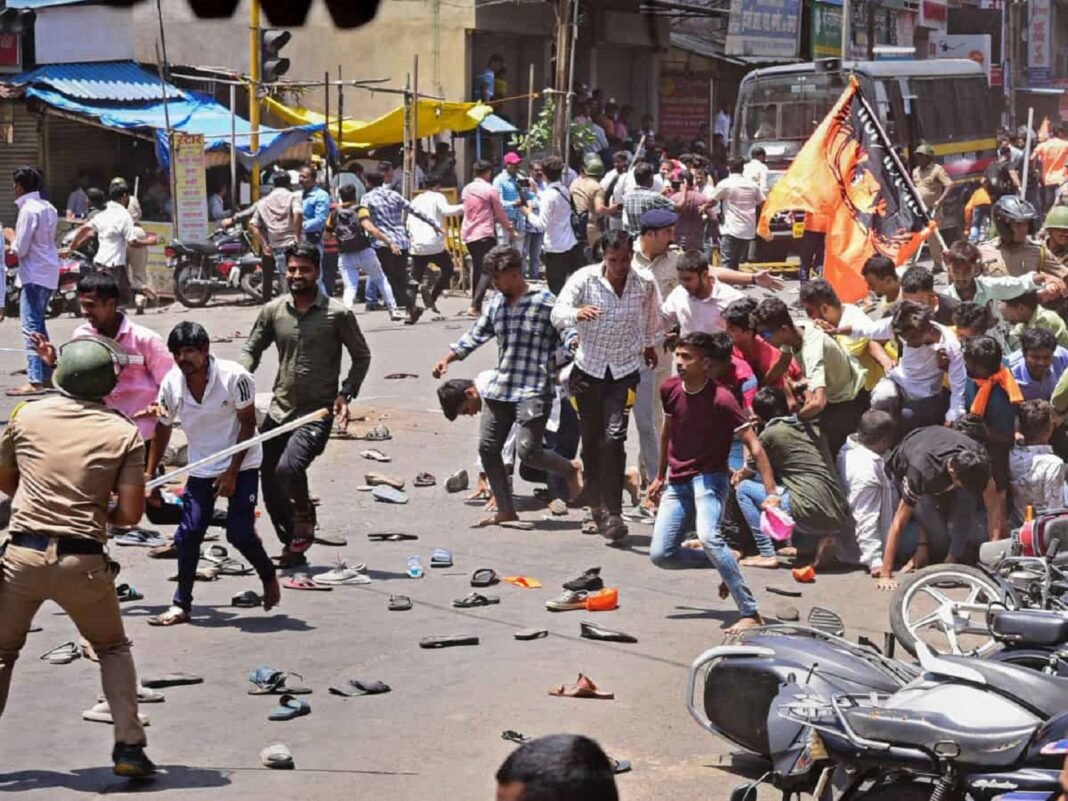In the aftermath of the recent violent clashes in Kolhapur, an FIR has been registered against Maharashtra Navnirman Sena (MNS) leader Sandeep Deshpande and eight others for burning an effigy of Aurangzeb at Mumbai’s Shivaji Park. The FIR was filed under various sections of the Maharashtra Police Act, including 37 and 135. The incident occurred as a response to the clashes that erupted following a controversial WhatsApp status regarding Aurangzeb.
The clashes in Kolhapur stemmed from a WhatsApp status posted by three individuals, which included a reference to Aurangzeb. The provocative message sparked tensions between two groups, ultimately leading to violence and the imposition of a curfew in the city. To restore order, the police resorted to lathi-charges to disperse the crowd and bring the situation under control.
In protest against the events unfolding in Kolhapur, MNS leader Sandeep Deshpande chose to burn effigies of Aurangzeb near Shivaji Park in Dadar. However, following a complaint by a police officer, an FIR was registered against Deshpande and eight others. As of now, no arrests have been made in connection with the incident.
The controversy surrounding the Kolhapur violence continues to escalate, as the clashes highlight the sensitivity of religious and historical references. The incident serves as a reminder of the potential for social media posts to incite unrest and trigger communal tensions. It also raises concerns about the appropriate response from political leaders during such critical moments.
While the registration of the FIR signifies that legal action is being pursued against those involved in burning the effigy, the situation remains fluid. The authorities must maintain a delicate balance between ensuring freedom of expression and taking action against acts that may aggravate communal tensions or incite violence.
As investigations into the Kolhapur violence continue, it is crucial for law enforcement agencies to conduct a thorough and impartial inquiry. Effective communication and community engagement are vital to prevent the situation from further deteriorating and to foster an environment of peace and harmony.




